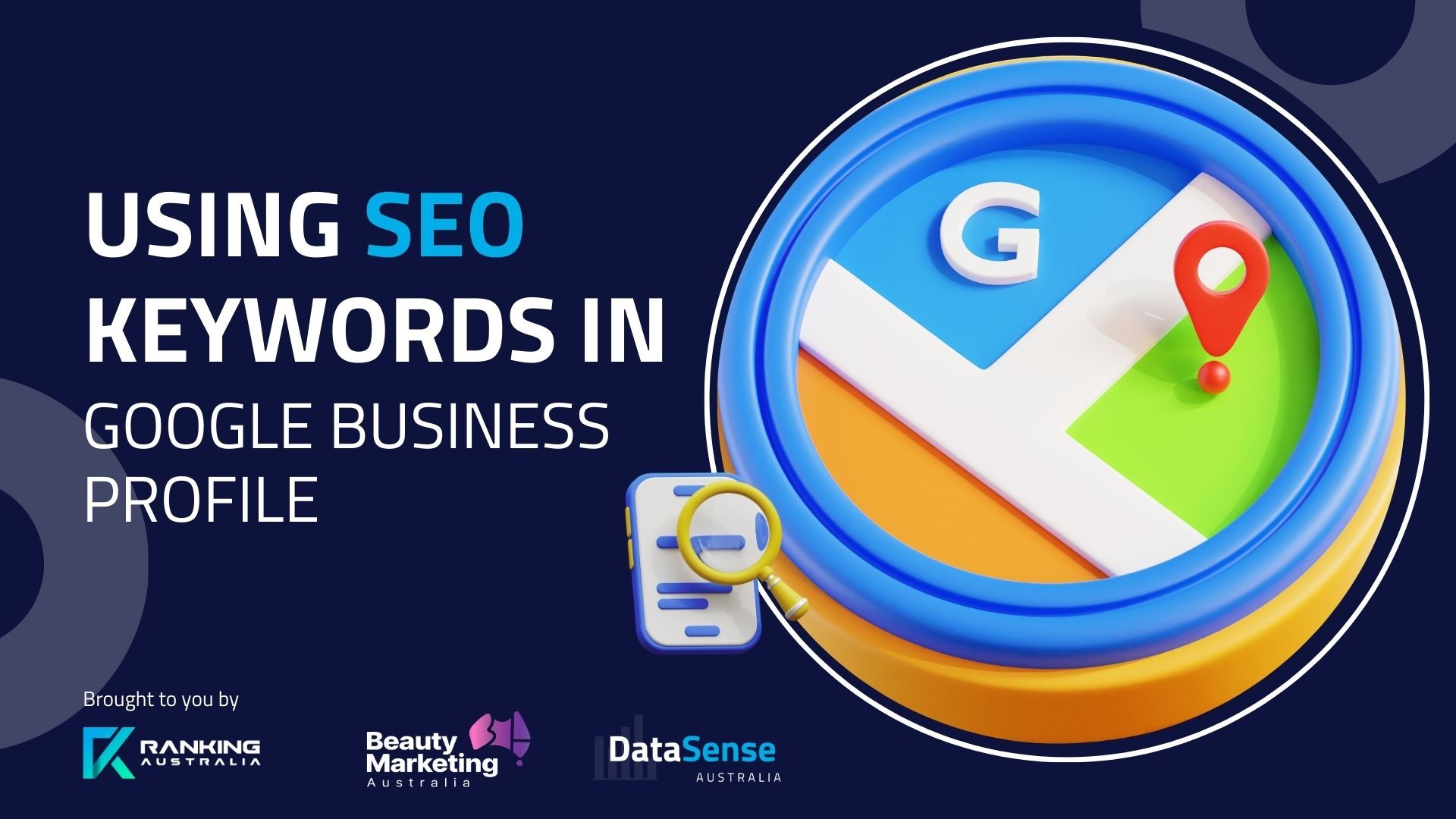How to Use Keywords in Your Google Business Profile
Digital Discovery Q&A (Oct 22, 2024)
Speakers: Katrina Puranik, Linda Morrison, Janeen Vosper
This session focused on optimising Google Business Profiles with effective keyword strategies to enhance local
visibility
and SEO performance, using practical examples and live demonstrations.
Key Topics Covered:
-
The Importance of Google Business Profiles for SEO:
-
Google Business Profiles play a crucial role in helping businesses show up at the top of search results (especially in local
search).
The session stressed that business owners should fully populate their profiles with relevant keywords in service
descriptions, events, and product listings.
-
Profile Strength Indicator: Ensure the profile has a "Looks Good" status to improve chances of ranking higher on Google.
-
Optimising Keyword Usage for Services:
-
Keyword Placement: Use keywords early in the service titles, descriptions, and SEO fields (title tags, meta descriptions).
-
Long-Tail Key Phrases: Katrina emphasised the value of specific search phrases, such as “print media
advertising for Logan,” to capture targeted search traffic.
-
Local Targeting Strategy: For businesses with a local focus, such as Logan West News, the priority is optimising services
with localised keywords (e.g., "Logan West newspaper" or "print advertising Logan").
-
The "Puzzle Piece" Analogy for Keywords:
-
Katrina used a puzzle analogy to illustrate how complete content ensures visibility for every word or
phrase within the SEO strategy. For example, optimising the phrase “print advertising for Logan West” will allow visibility for all
relevant variations
such as “print advertising” and “Logan West newspaper.”
-
Practical Tips for Business Profiles and Content Creation:
-
Service Descriptions: Include keywords within the first sentence to align with Google’s preference for
relevance at the beginning of content.
-
Avoid Overcomplicating Descriptions: Short, precise descriptions with relevant keywords are more effective than lengthy,
wordy content.
-
Ampersand Usage: Katrina explained that using “and” instead of “&” is generally preferred unless the
ampersand is part of a well-known phrase, such as “fish & chips.”
-
Leveraging Tools for Keyword Research:
-
Katrina recommended using tools like ChatGPT for keyword suggestions and refining content.
-
DataSense Dashboard: This tool helps businesses identify ranking opportunities by analysing search
volume
and competition for specific keywords.
-
Encouraging Questions and Ongoing Learning:
-
Katrina stressed the importance of asking questions, as even simple ones can lead to valuable insights and learning
opportunities.
-
Participants were encouraged to revisit their Google Business Profiles to ensure all services are fully optimised with relevant keywords.
Takeaways and Recommendations:
- Fully populate your Google Business Profile with services, descriptions, and keywords to boost local visibility.
- Use long-tail key phrases and ensure that keywords appear early in content fields.
- Maintain simplicity and relevance in descriptions to match Google’s content preferences.
-
Leverage tools like ChatGPT and DataSense Dashboard to identify SEO opportunities and
optimise content.
-
Consistency and completeness are critical—think of content strategy as completing a puzzle where every piece (keyword)
contributes to overall visibility.
The session concluded with a reminder to register for future sessions and take advantage of the available recordings
for ongoing learning. Katrina invited participants to attend the next Digital Discovery session focused on website
optimisation techniques.

